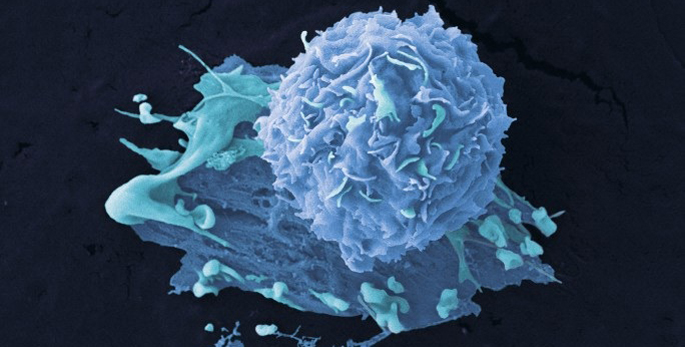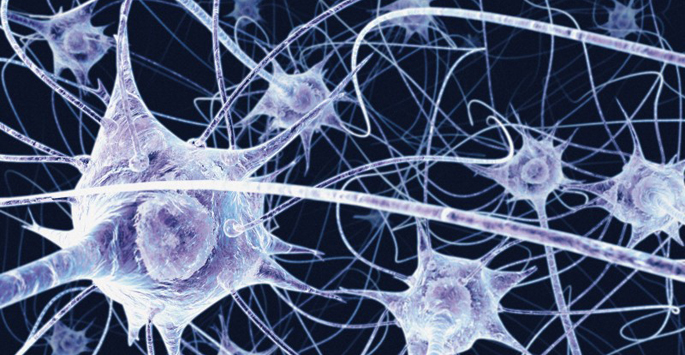Aliquots
-

In search of new cancer targets
Vanderbilt researchers developed a new algorithm to find clinically targetable gene rearrangements in cancers. Read MoreSep 9, 2016
-

Going after the ‘heart attack gremlin’
A protein called Gremlin 2 controls the extent of inflammation after heart attack and may be a good therapeutic target. Read MoreSep 8, 2016
-

Proliferative capacity of neuroblastoma
The sphere-forming frequency of neuroblastoma cells is a measure of their proliferative capacity and could help guide treatment strategies for neuroblastoma. Read MoreAug 31, 2016
-

Nervous system’s role in hypertension
Increased activity of the “fight or flight” nervous system contributes to obesity-associated hypertension and may be a good therapeutic target for the disease. Read MoreAug 29, 2016
-

New breast cancer driver
Vanderbilt investigators have demonstrated that a certain protein complex drives tumor progression in aggressive breast cancers. Read MoreAug 26, 2016
-

Growth hormone for Prader-Willi
Children with Prader-Willi Syndrome who received growth hormone treatment had cognitive advantages compared to untreated patients. Read MoreAug 25, 2016
-

In search of new asthma therapies
A peptide molecule relaxes airway smooth muscle and may be a potential therapeutic for asthma that has become resistant to standard therapies. Read MoreAug 15, 2016
-

New culprit in nerve degeneration
Vanderbilt researchers have discovered that regulation of cell volume plays a role in nerve degeneration and peripheral neuropathies. Read MoreAug 12, 2016
-

Transcription factor evolution
Vanderbilt researchers have discovered a novel model of evolution for factors that control gene expression. Read MoreAug 11, 2016
-

HIV treatment and TB risk
Tuberculosis (TB) remains an important public health problem, particularly among people infected with the human immunodeficiency virus (HIV). Read MoreAug 4, 2016
-

Fetal impact of antidepressants
Antidepressant use during pregnancy is common. Fetal exposure to the class of antidepressants known as selective serotonin reuptake inhibitors (SSRIs) is associated with the life-threatening condition PPHN (persistent pulmonary hypertension of the newborn), but a causal link has not been established. Read MoreAug 3, 2016
-

Refining neural circuitry
During development, neural circuits are remodeled – some synapses are eliminated and others are strengthened – to produce a mature, functional nervous system. Read MoreAug 2, 2016
-

Possible overeating antidote
The 2C-subtype of the serotonin receptor (5HT2C), which binds the neurotransmitter serotonin, plays an important role in regulating food intake and metabolism. Read MoreAug 1, 2016
-

Breast cancer: finding the smoking gun
A new method developed at Vanderbilt may help “inventory” all tumor-promoting genes. Read MoreJul 20, 2016
-

Diabetes drugs may ease addiction
Drugs that are being used clinically to treat obesity and diabetes may also have a role in treating drug abuse. Read MoreJul 18, 2016
-

Work together to control diabetes
Parenting behaviors may be an important target for improving outcomes in adolescents with diabetes. Read MoreJul 15, 2016
-

Membrane fats impact drug transporter
New studies of a membrane transporter could explain antibiotic resistance – and lead to novel ways to combat it. Read MoreJul 14, 2016
-

M.D. affiliation and Medicaid access
In the journal Medical Care, Michael Richards, M.D., Ph.D., MPH and colleagues report that more office-based physicians are affiliating with integrated health systems. Apparently through this affiliation, physicians become more likely to accept Medicaid patients. From 2009 to 2015, independent practices decreased from 73 percent to 60 percent… Read MoreJun 29, 2016
-

The odds of asthma
A number of factors during infancy increase the risk that a child will later develop asthma. Read MoreJun 27, 2016
-

Superior scan for tumors
Imaging with a compound that binds to neuroendocrine cells is a safer and more effective way to detect rare neuroendocrine tumors. Read MoreJun 24, 2016